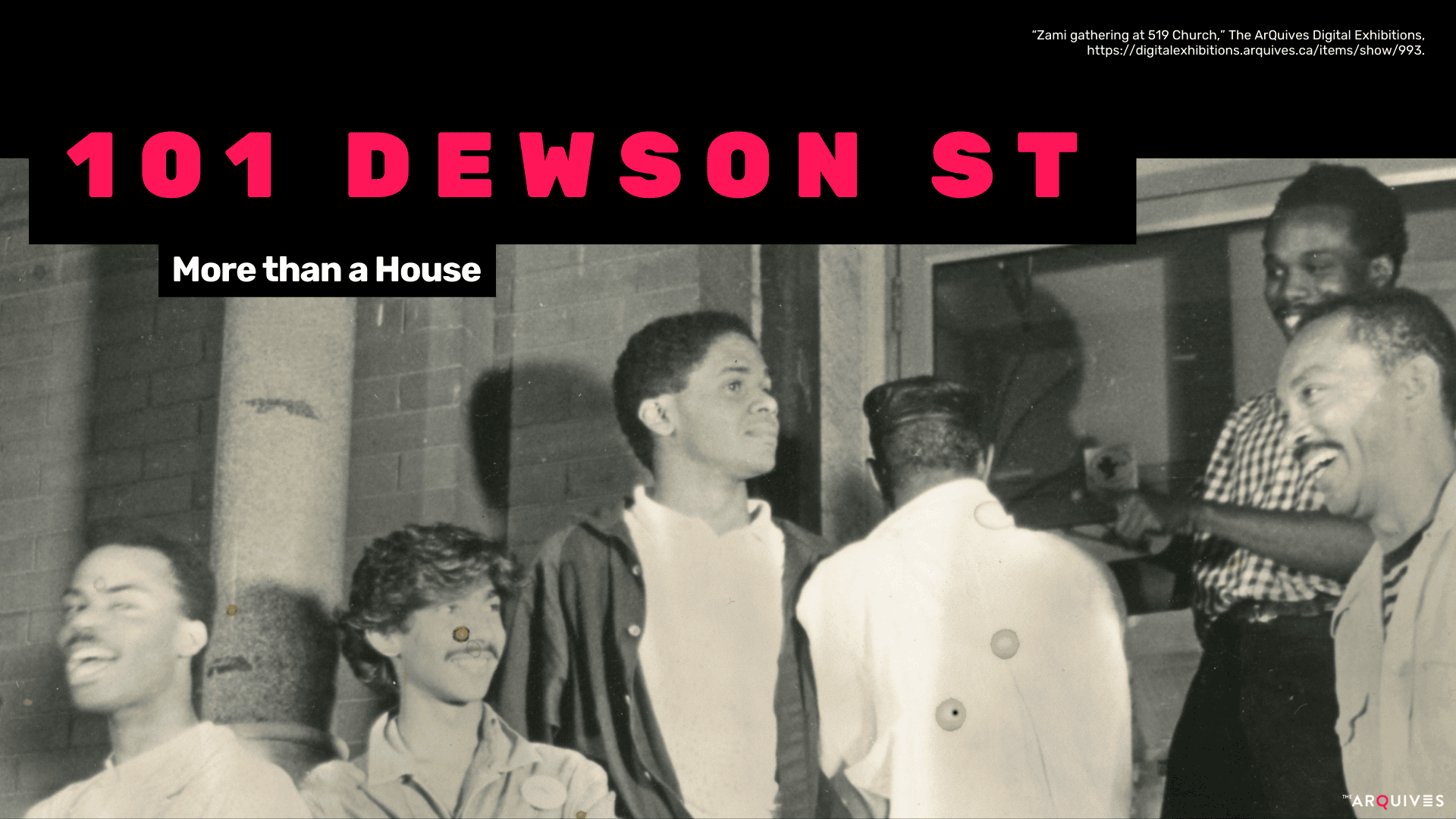Former ArQuives intern, Dede, shares two important organizations that began a thirty minute walk from their Toronto home
It begins at 101 Dewson Street, between Dovercourt Road and the east end of Dufferin Grove Park. In 1983, the temperament of Toronto became more and more eager for social change. Activists and romantic partners, Makeda Silvera and Stephanie Martin, wanted a hub for LGBTQ2+ and Black, Indigenous, People of Colour (BIPOC) communities. Several pivotal organizations were born out of ‘101’, as people called it.
Zami
When Debbie Douglas and Douglas Stewart lived together at 101 Dewson in 1984, they made Zami, a collective. Connected to the derogatory Creole term for lesbian sex, Zami: A New Spelling of My Name, is the biomythography by Black and lesbian poet Audre Lorde published earlier in 1982. Zami, the collective, used every outlet to promote their events at 101 or the 519 Community Centre, despite regularly encountering racism from several mainstream and LGBTQ2+ newspapers and magazines.
An important example of the persecution they faced is directly linked to here at The ArQuives. The Body Politic—one of the most popular gay and lesbian magazines—printed at the same offices of what is now The ArQuives. The magazine announced the Canadian Gay Liberation Movement Archives in an editorial letter in its November 1973 issue. Their history is rife with controversy, including publishing a classified ad wherein a white gay man asked for a “Black houseboy”. Zami collaborated with Gay Asians of Toronto (GAT) to challenge The Body Politic, writing their own pieces about the LGBTQ2+ community and race.
It is contentious moments that pave the way for other LGBTQ2+ and BIPOC communities, spreading to today – for example, the Black Lives Matter protest at Pride Toronto in 2016.
Black CAP
At the onset of the HIV/AIDS epidemic, 101 recognized that resources for Black people with HIV were few and far between. The Black Coalition for Aids Prevention (Black CAP) was founded by Douglas Stewart and Camille Orridge and is still in operation today. They are the largest AIDS service organizations, specifically for Black people. Their mission statement includes the following:
“Black CAP works to create culturally relevant outreach, prevention and support services for people infected with, affected by, or at risk of contracting HIV. The work that we do is necessary, but it is not easy. Social barriers like HIV stigma, racism, homophobia and poverty make our work more difficult, however, it’s our understanding of these barriers that strengthen Black CAP’s efforts.”
– source
Organizations like Black CAP were vital in creating new means of social change that acknowledge how racism and poverty collide with homophobia to create unique problems for Black people in Toronto.
Today, we are more connected and more fragmented than ever and our social movements are no different. People have reached incredible feats in social progress with social media and camera phones. Regardless, today’s activists do take this past to heart and sharing it with the public is a great privilege. Our access to this history reinforces the rich and diverse history of Toronto’s 2SLGBTQ+ communities and their struggle for justice.
Author bio: Dede Akolo (she/they) is a writer born in Vancouver, BC and now based in Toronto, ON. In 2020, they were nominated for “Best Personal Essay” at the Digital Publishing Awards and have been featured in Chatelaine, Exclaim!, and Xtra. In Fall 2022, Dede was Marketing and Promotional Intern at the ArQuives as a part of the Professional Writing and Communications Postgraduate Certificate program at Humber College.

